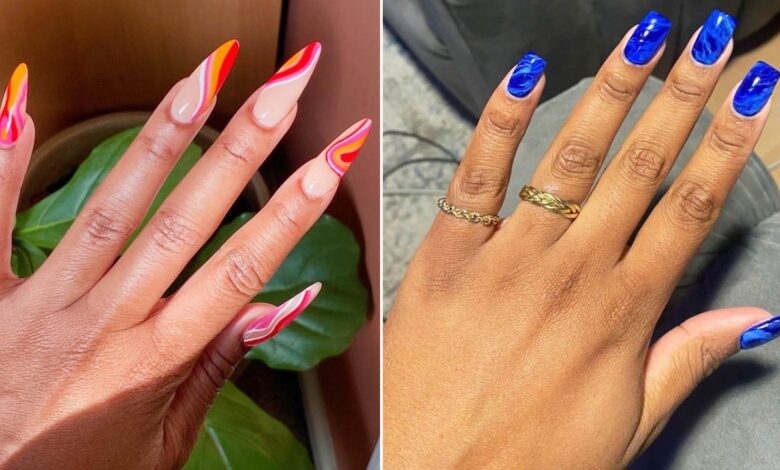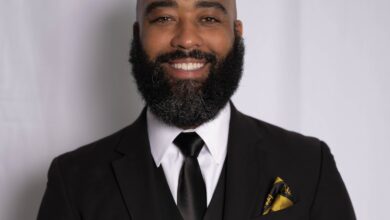BlkGirlNailfies Is Re-Centering Black Women in the Nail Art World

This celebration is necessary — nail art is a form of expression that holds a special, storied cultural significance within the Black community, most notably when it comes to nail extensions.
Long nails can be traced back to ancient Egypt, a time when women were believed to have worn artificial nails made out of ivory, bone, and gold. The art on those nails acted as signifiers of class, with royal ladies like Queen Nefertiti wearing red polish to symbolize their societal power.
Over time, Black women have played crucial roles in the popularization and cultural evolution of nail extensions. Contemporary icons like Olympian Florence Griffith-Joyner (Flo Jo) and rappers Lil’ Kim and Missy Elliott helped cement acrylic nails and bold nail art into the Black aesthetic landscape. However, for generations, Black women who wear their nails long and loud have not been treated as innovators of self-expression — they are instead plagued by classist stereotypes, critiqued, and branded by words like “ghetto” that hold racist and classist connotations.
As these trends entered the mainstream, appearing on the fingers of non-Black stars who are praised for their creative audacity, the Black women who originated the look were generally omitted from the narrative.
In a world of whitewashed Pinterest nail boards and Instagram #nailinspo searches, the very existence of spaces like BlkGirlNailfies rejects the erasure of Black women, past and present, in nail art culture.
While the cultural gravity of Black women’s relationships to nail art continually informs their page’s purpose, the founders of BlkGirlNailfies didn’t start out with an intention to subvert historical narratives. They wanted to have fun.
“Black women always need a sense of community, because there are so many spaces that clearly are not for us,” says Javelle. “But things don’t always have to be so heavy. In my mind, my priority was: I want this to be fun.”
Instagram content
This content can also be viewed on the site it originates from.



